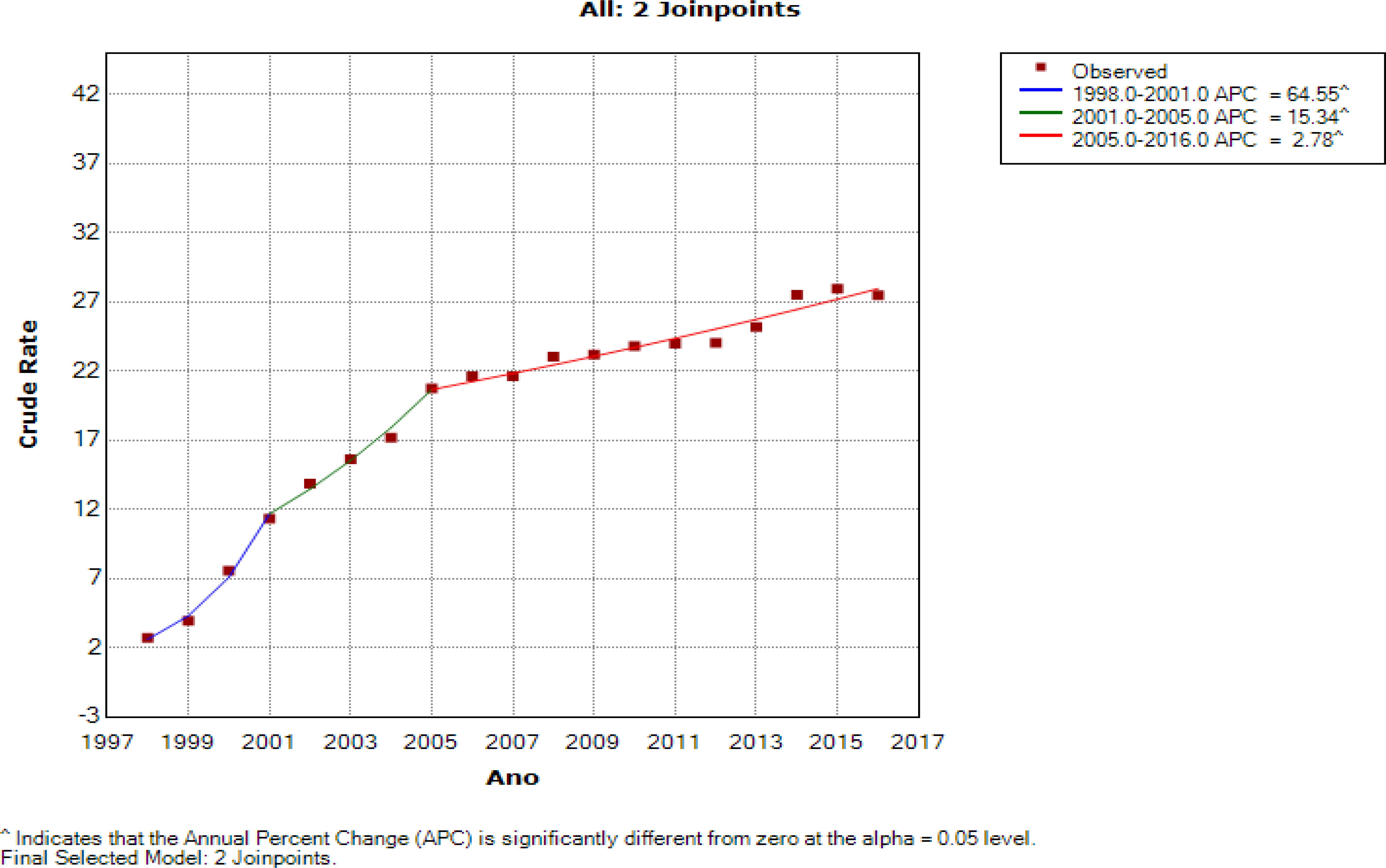Abstract
The goal of the present study was to describe the implementation of Primary Health Care in the Northeastern Region of Brazil and its correlation with social indicators. It is an ecological study with data from the Primary Health Care Department (Departamento de Atenção Básica, in Portuguese) of the Brazilian Ministry of Health and from the Brazilian Institute of Geography and Statistics (Instituto Brasileiro de Geografia e Estatística, in Portuguese), and the variable of the study is the number of Community Health Workers, Health of the Family Teams and Health of the Family Support Centers. The calculation of the time trend of the Community Health Workers and of the Health of the Family Teams was performed using Poisson’s joinpoint regression. We observed a strong correlation (r ≥ 0.7) between the social indicators and the implementation of Primary Health Care and of the Health of the Family Center in the Northeastern Region, inadequate sanitary sewage systems, total fertility rate, houses with indoor plumbing, percentage of houses with garbage collection, life expectancy at birth, aging rate, and probability of living until the age of 60 years. The health and development variables presented a statistically significant (p < 0.05) change in the correlation and determination coefficient. There is a time trend regarding the increase in the implementation of Primary Health Care in the Northeast, and there is also a strong correlation between the social and health indicators.
evaluation in health; Primary Health Care; Family Health Strategy; social indicators; public health

 Nota: ACS = Agente Comunitário de Saúde; EqSF = Equipes de Saúde da Família e NASF = Núcleos de Apoio à Saúde da Família.
Nota: ACS = Agente Comunitário de Saúde; EqSF = Equipes de Saúde da Família e NASF = Núcleos de Apoio à Saúde da Família.

